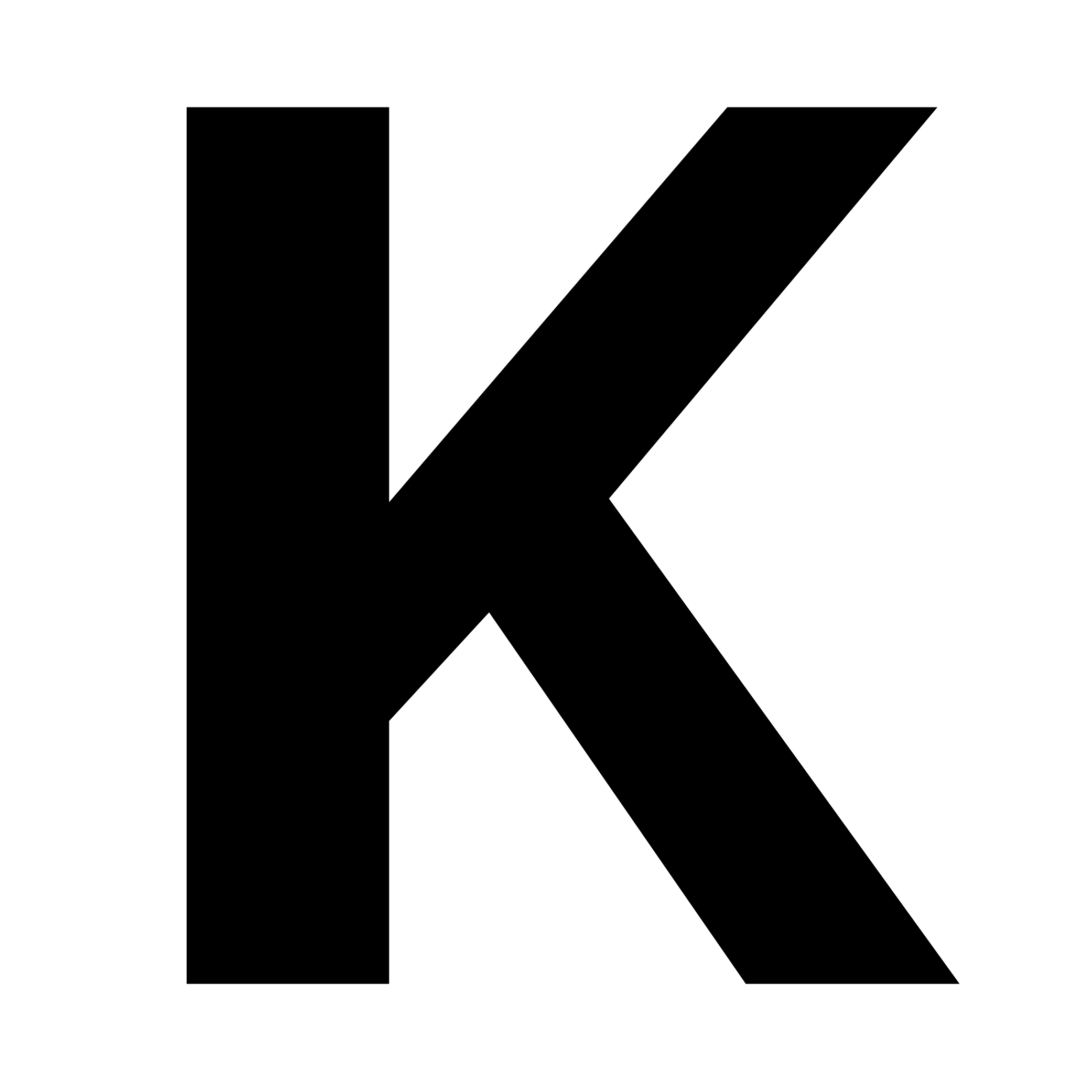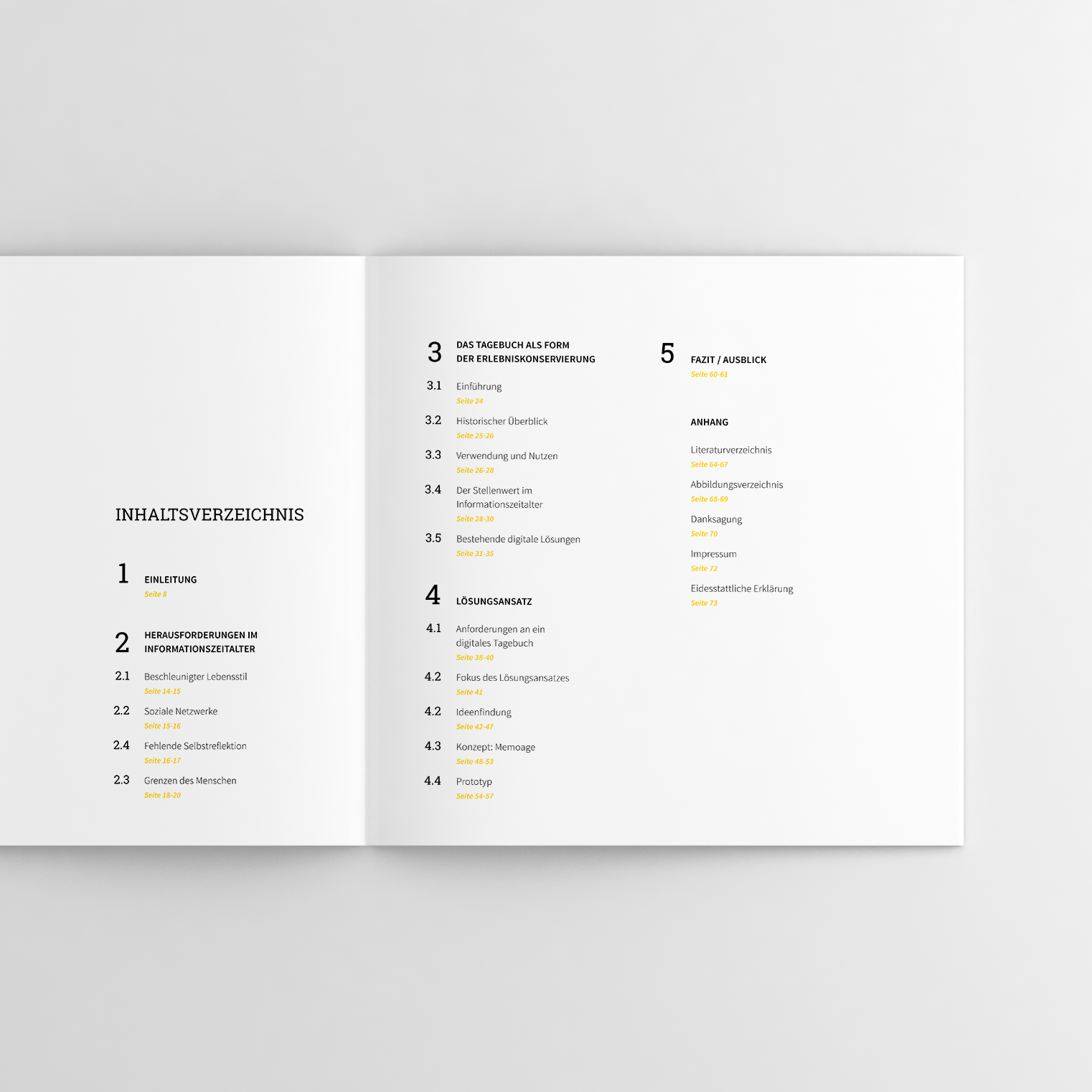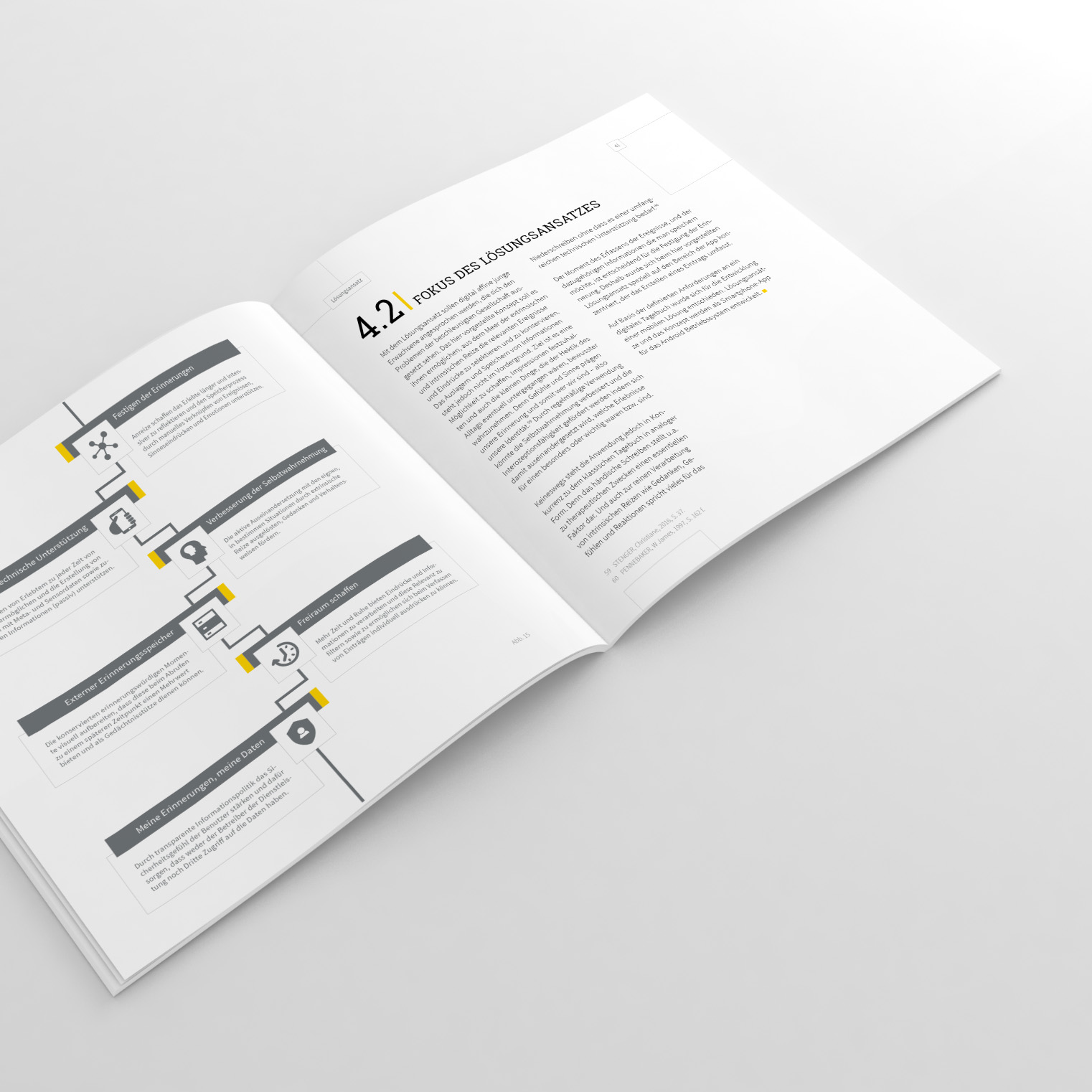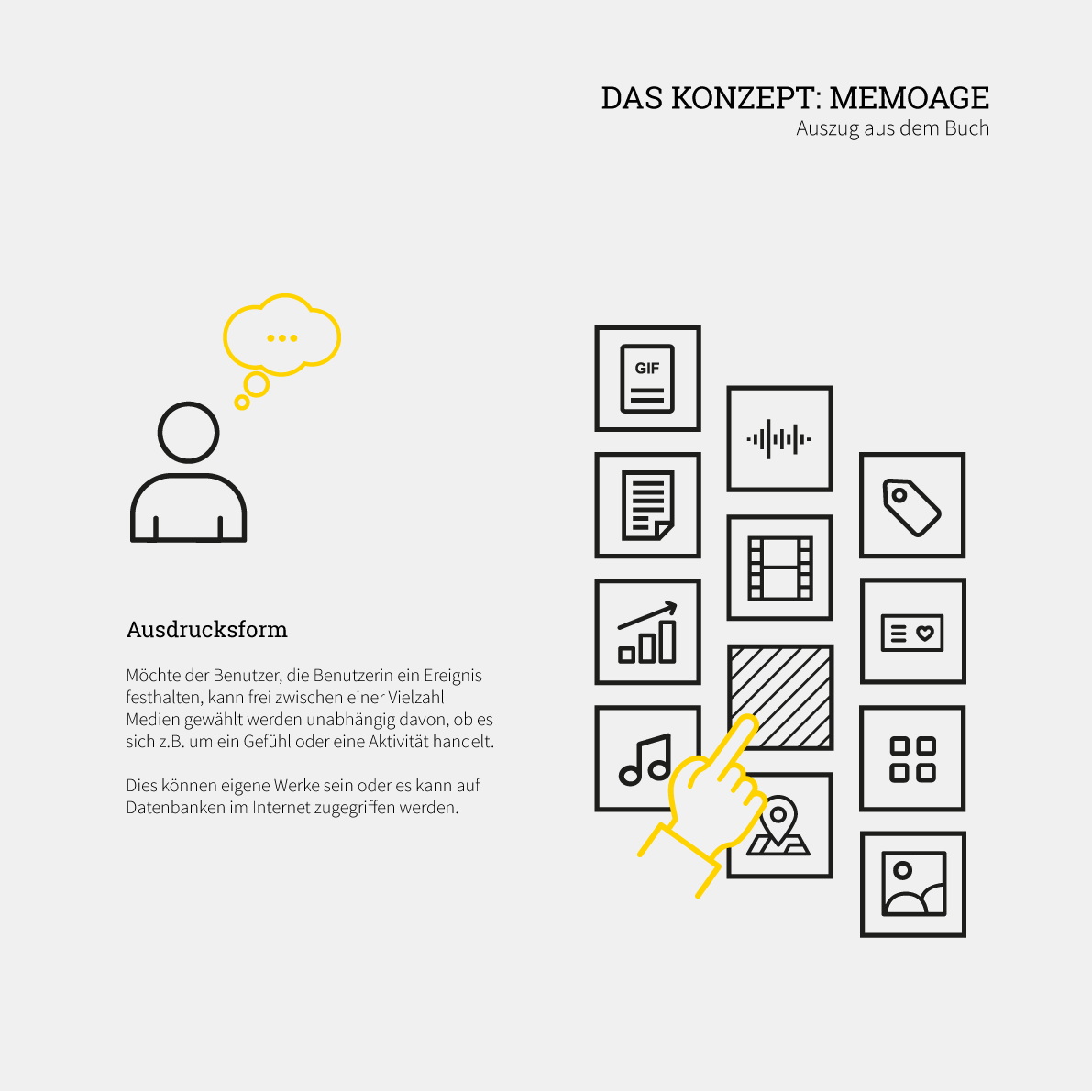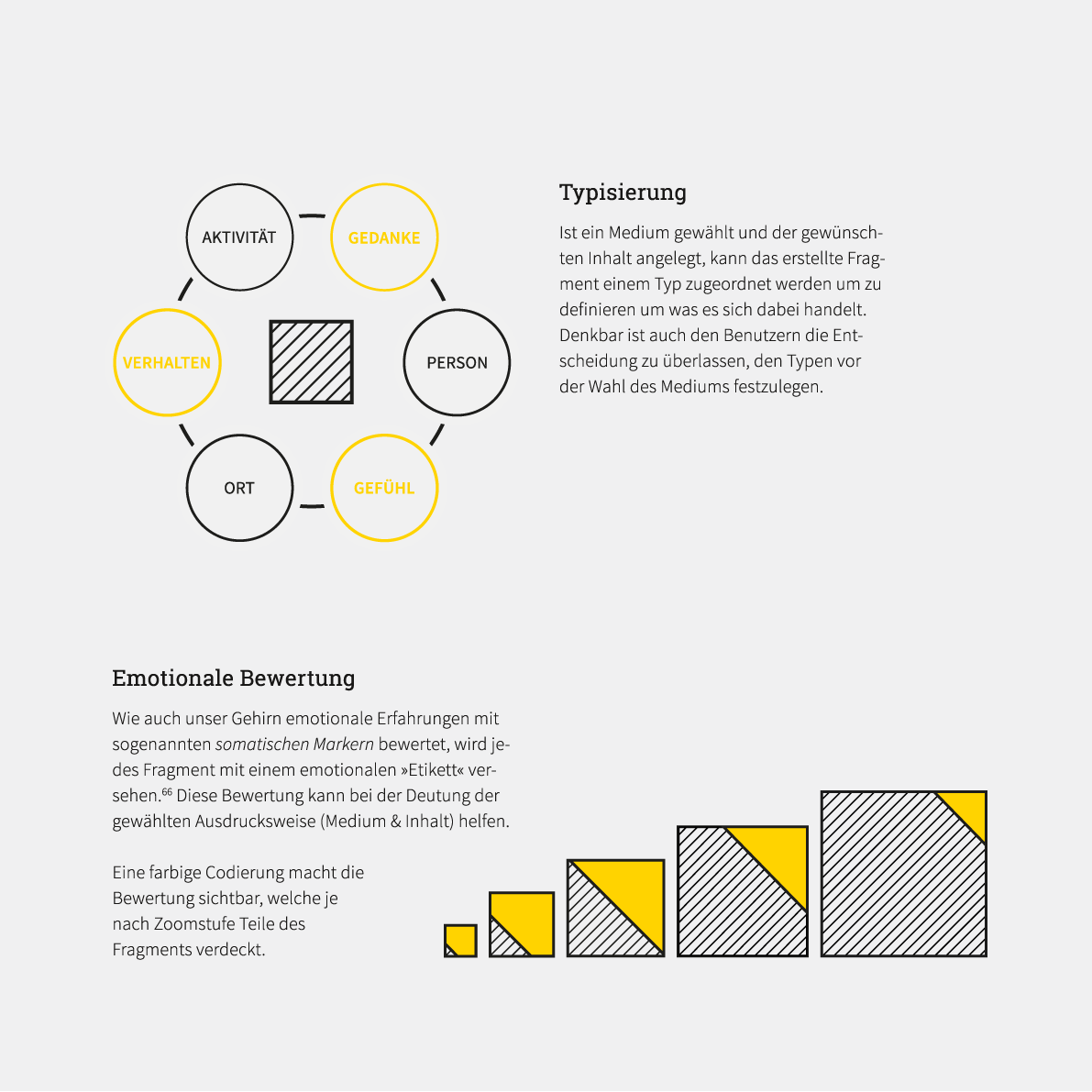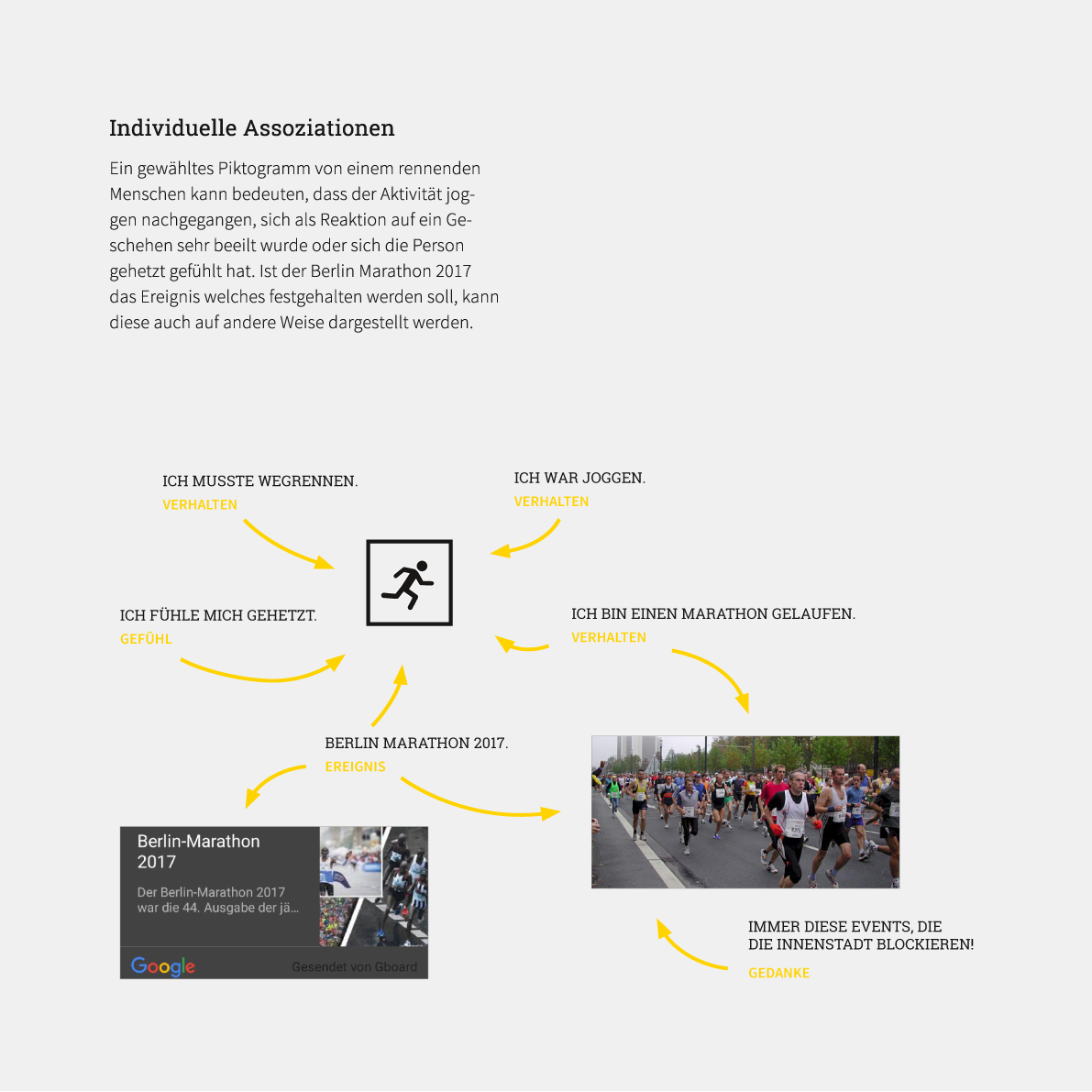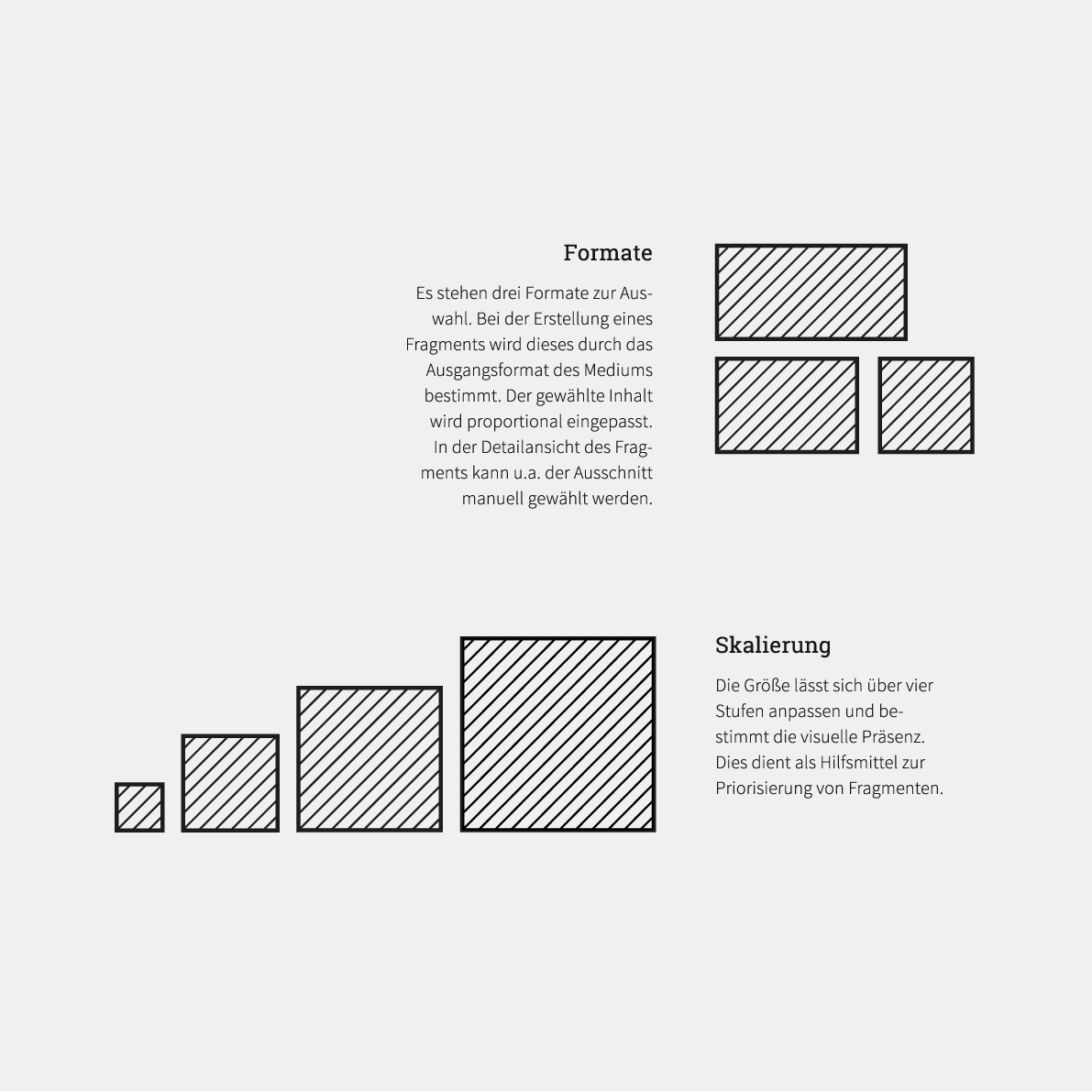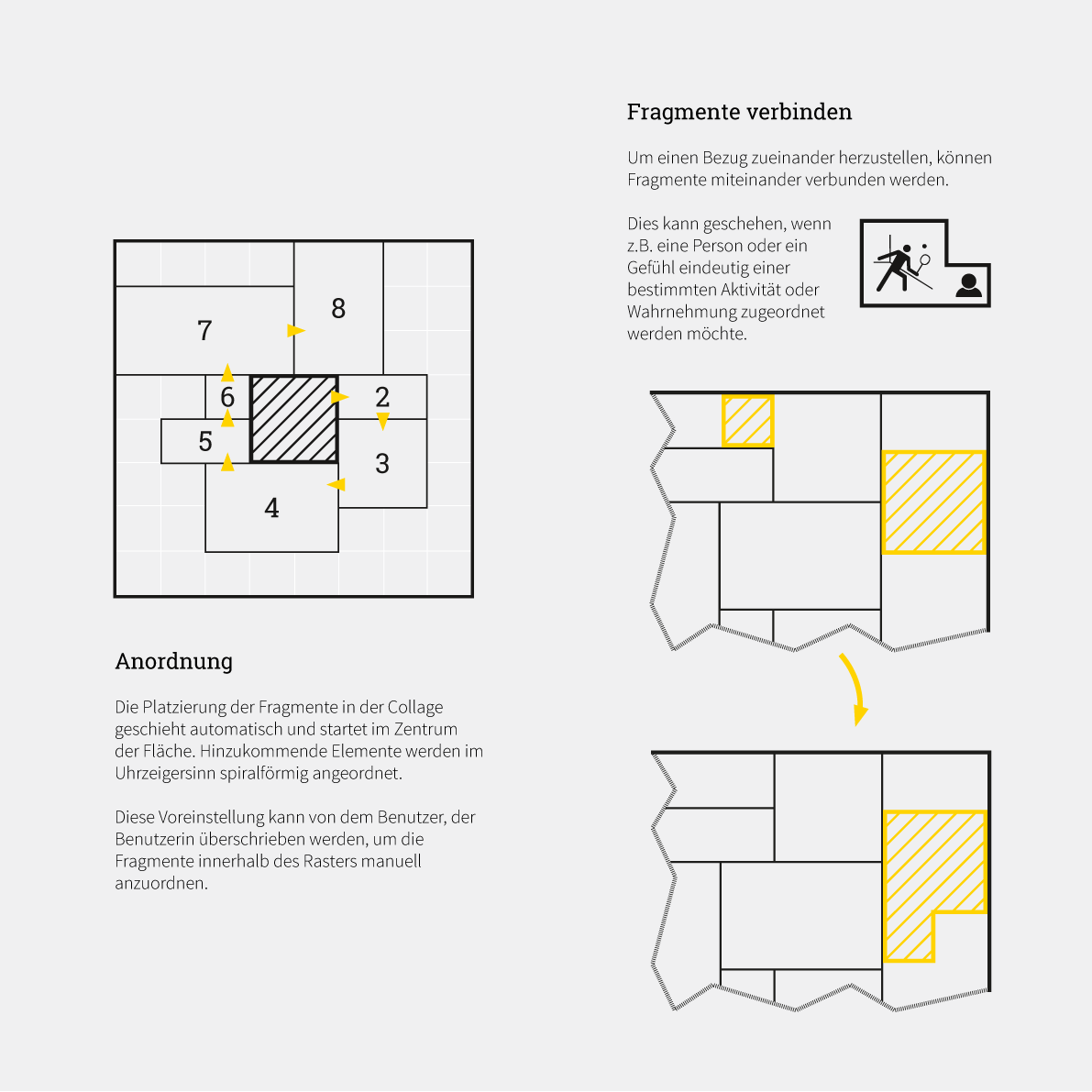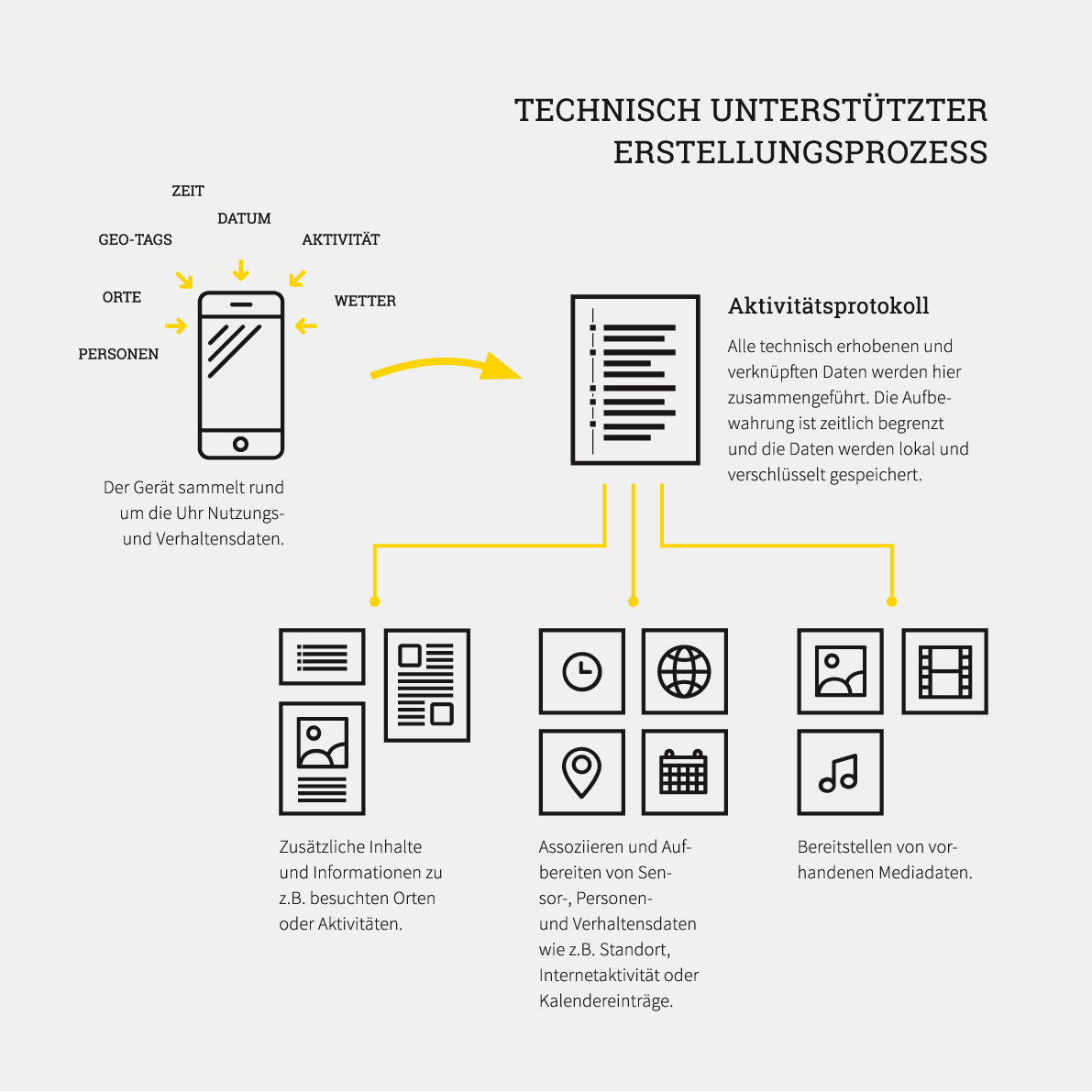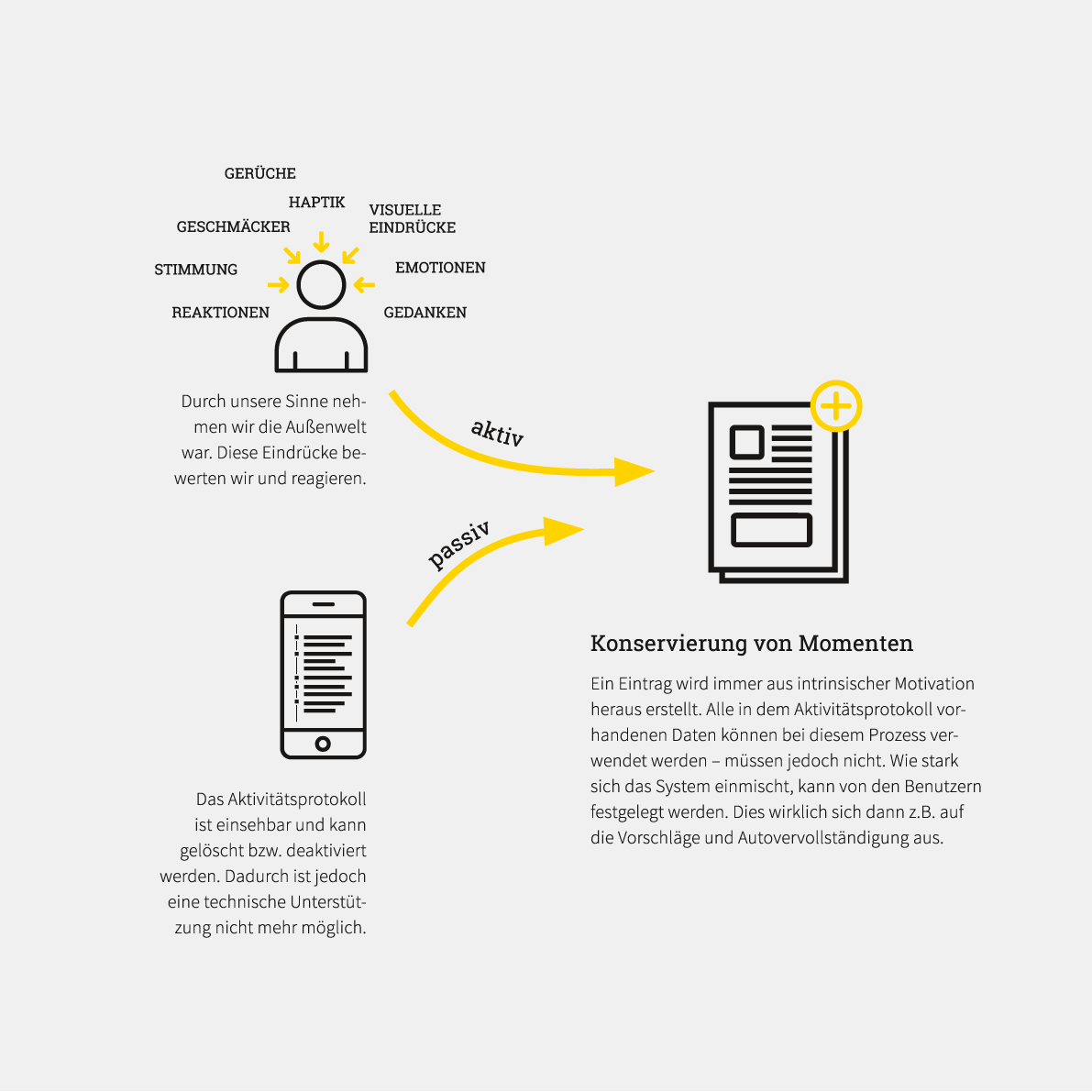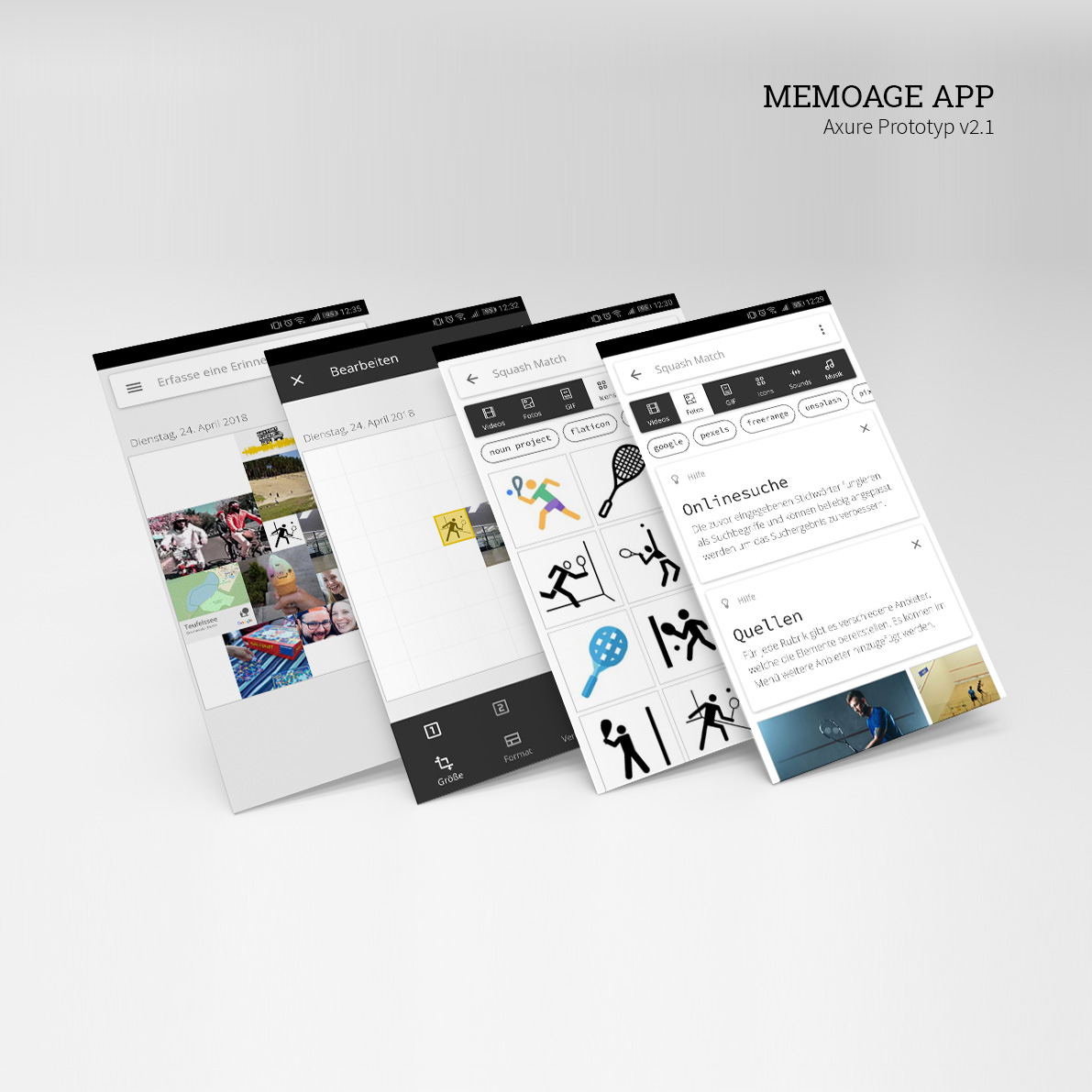Document
Date
Q2 2018
Category
Interface, Product Design, User ExperienceMemoage [B.A.]
Memory processing and preservation in the information[overflow]age
The acceleration of our lives in recent decades has steadily increased due to automation, modern media and the internet, particularly as a result of the digital transformation. In order to not miss out on any information in our social and professional environments, and to avoid losing connection or simply to have more free time, we often use all sorts of tools, often technical ones, to optimize our lives. However, the result is often not more intense social contact or more time available. In fact, the saved time is often used to further optimize and meet social demands, which in turn requires further technological advances. This can make it difficult to break free from this cycle.
We are taking less and less time for ourselves, and we devote little time to processing our experiences. Filtering out the information that is relevant to us is becoming increasingly difficult. Tools that help us process and preserve our experiences, such as classic diaries, are rarely used. In this work, I explored the diary as a tool for experience processing and preservation, and examined what form and functionalities would make for the most ideal assistive technology possible.
The aim of this work was to create a concept for such a tool that addresses the challenges of an increasing acceleration of our lives as completely as possible. The first part of the work focuses on the challenges of the information age. The second part focuses on the diary as a way of preserving experiences. Finally, the solution developed in this thesis will be discussed.

